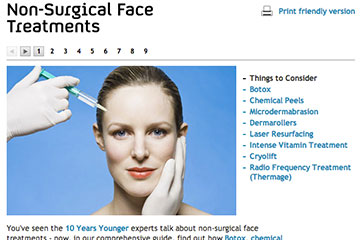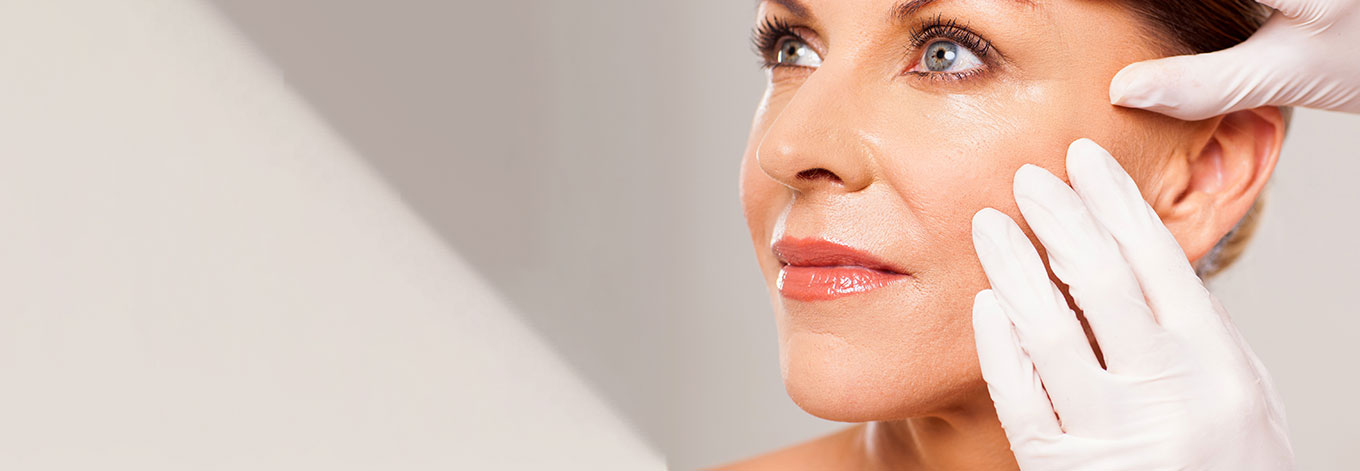
Non-surgical face treatments
ANTI-AGEING AND REJUVENATION
Channel 4
You’ve seen the experts talk on 10 Years Younger and How To Look Good Naked. In our comprehensive guide to non-surgical face treatments, find out how Botox, chemical peels,microdermabrasion and other types of non-surgical face treatments work and if they are right for you.
Things To Consider
Botox
Chemical Peels
Microdermabrasion
Dermarollers
Laser Resurfacing
Intense Vitamin Treatment
Cryolift
Radio Frequency Treatment (Thermage)
The number of non-invasive face treatmentshas soared over the last ten years. Now you can have your lines smoothed, blemishes removed and wrinkles in a few hours. Most recovery times are short and (almost) painless and technology is constantly developing in this thriving area to create more natural-looking effects.
However, they are serious procedures with all the associated risks and should be treated as such. You can correct a mistake in hair colour – you might not be so lucky with your skin.
Dr Puneet Gupta, Cosmetic Physician at The Private Clinic in London’s Harley Street gives the following sage advice:
1. Do your research
It’s important for anyone considering any sort of cosmetic treatment to do their research and ensure they visit an accredited consultant who is registered with an independent body like the British Association of Cosmetic Doctors. Take the time to find a consultant who is experienced in their skin type and condition.
2. Don’t go for a bargain deal
Do not let your decision be swayed by money-off deals or offers as when it comes to your own body or skin, price should not be the main concern.
3. Be realistic
Keep your expectations in proportion as this will guide the type of treatment your practitioner will choose for you – and ensure you get the best results.
4. See a dark skin specialist
Darker skin is harder to treat, as people with these skin tones naturally have more pigment in the skin and are therefore more at risk from side effects, like hyper-pigmentation. It is therefore important to find a practitioner experienced in treating your skin type.
5. Stay out of the sun
If you are going for laser or Intense Pulse Light (IPL) treatments, you should seek advice about safe levels of sun exposure before and after treatment. Certain lasers require you to keep out of strong sun prior and up to a week after your treatment as your skin can be extra sun sensitive.
6. Do your prep
If you are having a chemical peel your practitioner may give you a home preparation regime to follow, so make sure you stick to it. Some of the milder chemical peels do not require a special programme, although you should be strict about your skincare regime in the weeks leading up to it, so use a good cleanser, toner and moisturiser. If you are having a stronger peel, and particularly if you have type ‘four’, ‘five’ or ‘six’ skin (Mediterranean skin or darker), then your practitioner will put you on a system of creams before carrying out the peel. Again, it is important that you find a practitioner who has experience in treating darker skin tones as the risk of side effects are greater.








